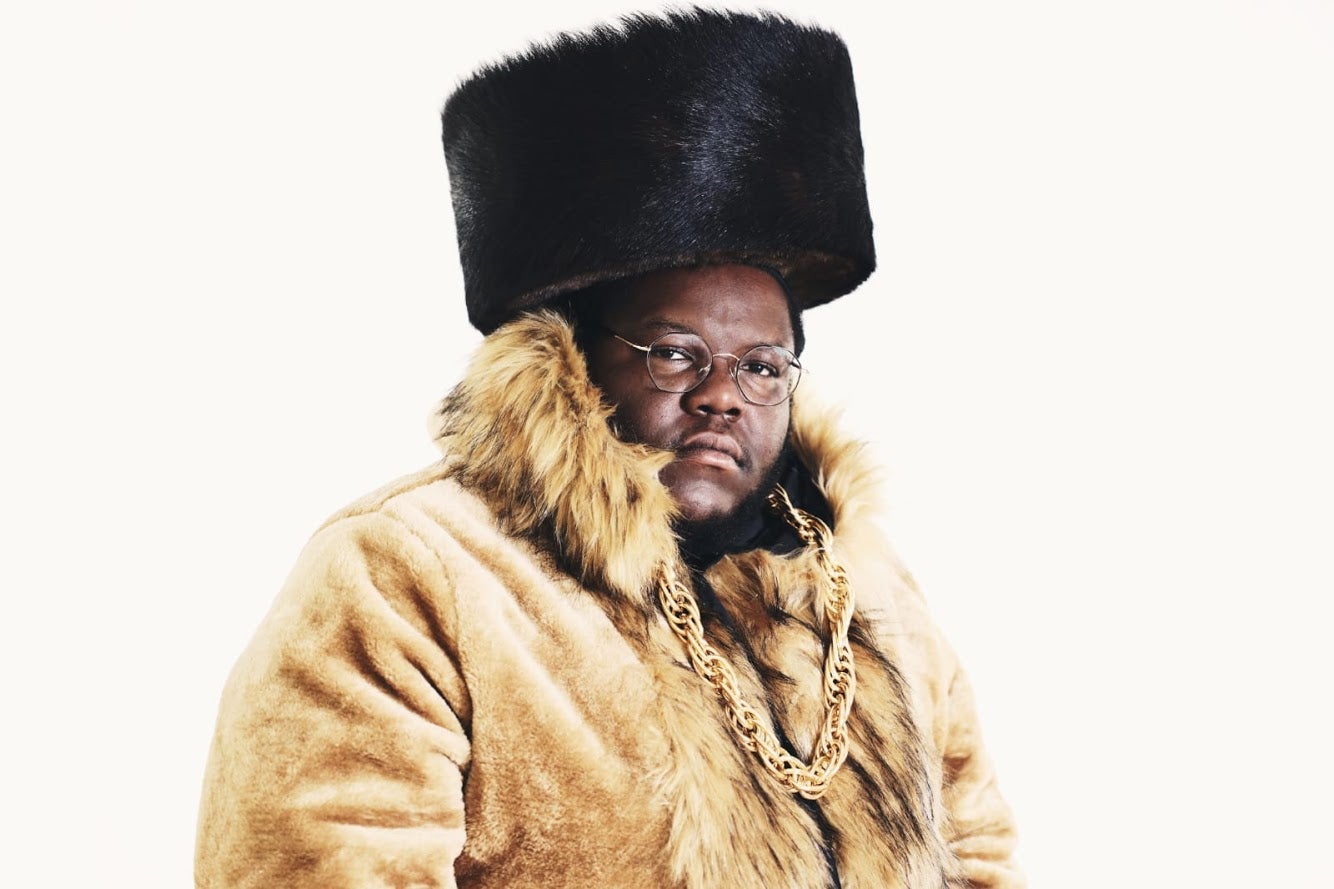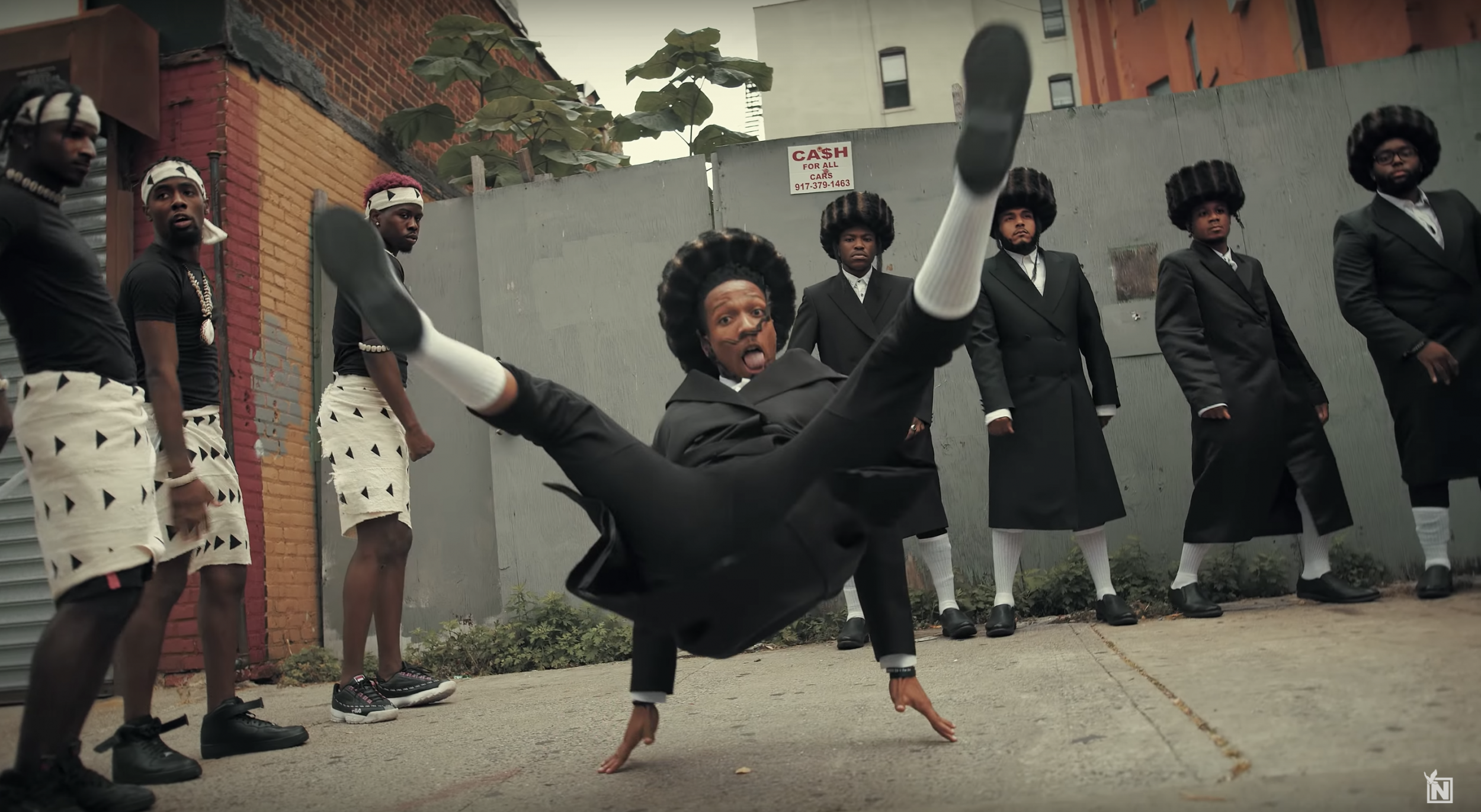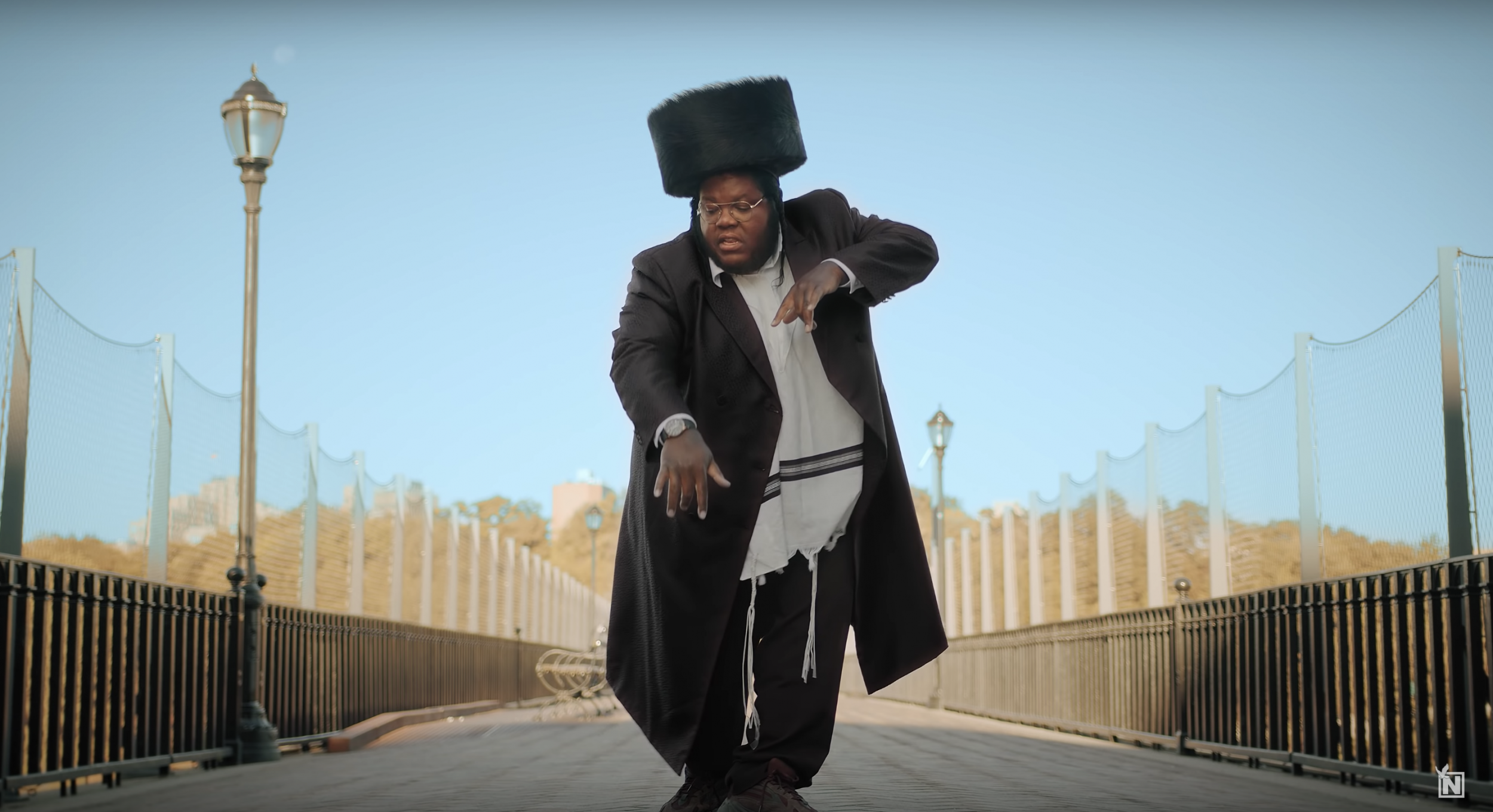From guns and gangs to Orthodox Judaism: Meet the Haredi rapper taking Israel’s music scene by storm
Interview: Nissim Black tells Bel Trew his music explains what he goes through every day – ‘turning heads’


It is an unusual journey: from drug-dealing west coast gang member to ultra-Orthodox father-of-six living near Jerusalem.
But then again nothing about Nissim Black, 33, an African-American Hasidic rapper, is ordinary.
For a start the Seattle-born singer, who started off his musical career alongside Macklemore, has improbably taken Israel’s Orthodox community by storm since moving there in 2016.
Despite having been a professional rapper for over a decade, he has recently scooped up an entirely new following of religious millennials, becoming a mainstay in the “kosher” music scene that has blossomed over the last few years.
By deftly mixing hip hop, rap and pop with spiritual messages in his songs, he performs to packed stadium gigs around the world as well as male-only conservative Jewish wedding parties back home.
He acknowledges it is a niche position to take and in his own words, since converting, has “turned heads”.
It is a point he addresses in his latest single “Mothaland Bounce” – an insanely catchy rap song released last month, ratcheting over two million views on YouTube.
The defiant lyrics unashamedly embrace who he is: black, Orthodox, a rapper who migrated from the States to Israel – as well as the troubles, and even racism, he has faced along the way.
The music video hammers it home with a sense of humour: hoodie-wearing gang members breakdance with Orthodox men in a rundown Harlem street.
“It’s about me being a black Jewish guy talking about how happy I am with my faith and with my colour,” he says pointing to specific lyrics: “In the synagogue, camouflage, but I can’t wipe the skin off / I’m proud of it, it’s loud a bit, but I’m not tryna criss-cross.”
“It explains what I go through every day: turning heads,” he continues.
“You go to a new synagogue everybody is staring at you, you go to an airport in New Jersey and all the black people are staring at you.
“I feel that I am always having to explain myself, I wanted to raise awareness.
“But at the same time, I wanted it to be fun, so people would enjoy it.”
It is a tough and tricky line to toe: adhering to the strict rules of the Orthodox community while melding that with a musical genre often associated with sex, drugs and violence.
Ultra-Orthodox Jews, which include a spectrum of sects, including Haredim which Nissim is part of, adhere to strict rules including dressing and behaving modestly. Gatherings like concerts, weddings and worship are gender-segregated.
Many Haredi communities refuse to publish images of women in their newspapers, or record women singing.
Men are also not permitted to hear women’s voices, as they are considered too enticing.
And so the Orthodox music scene is exclusively male.
Traditionally many of the Orthodox devote time to religious studies rather than joining the workforce as they believe they are commanded to by God.
In Israel, where 10 per cent of the population are ultra-Orthodox, that is slowly beginning to change as the state has buckled under the financial strain of supporting the growing numbers of Orthodox families.
A slew of new “kosher” start-ups are booming, including Orthodox-friendly shared workspaces and “kosher” mobile technology, which develop systems to block any inappropriate content. Within that trend is a burgeoning music scene – including appropriate recording studios and production companies.
Nissim has navigated that with huge success but reluctantly acknowledges there has been some resistance and even racism.
He admits after initially moving to Jerusalem he was forced to relocate to Beit Shemesh, a town 25km away, because he struggled to find a yeshiva – or religious school – which would admit his daughter.
“My problem was my colour and the music. Some people who were the gatekeepers didn’t understand my musical efforts and thought we weren’t as Orthodox as we said we were.”
Most people assume being Jewish means being white, he continues delicately, and that problem is also apparent in parts of Israel.
This is what he wanted to address in “Mothaland Bounce”.
It is a bold return to what he calls a more “rap rap rap” sound that “navigates [his] own growth and struggle”.
It has received overwhelmingly positive reviews, is a huge hit in Israel and abroad and has gone viral on music platforms Spotify and TikTok but among the comments is a sprinkling of people who think the song – and the video of Hasidic men break-dancing – is too secular for the Orthodox community. Nissim admits the director, who shot the video in New York, originally wanted to feature topless male dancers, something he would not abide.
But still, it is a significant departure from his previous songs, including a collaboration with well-known Jewish singer Yisroel Laub. “A Million Years”, released in 2016, is a pop song about faith featuring a video of Nissim carrying the Torah and wearing the tefillin, a black leather box that Orthodox Jewish men (and women in other traditions) wear on their head.
“I went to five different rabbis before I made ‘Mothaland Bounce’. I knew the sensitivity of making this song. But the rabbis I spoke to told me your music is your gift and talent, they said you need to make music for the non-religious world.”
Nissim continues that there are a lot of Jewish young people who “don’t feel comfortable with is out there”.
“The rabbis told me I need to shift my focus. Instead of preaching to the choir, I wanted to able to reach more people and ultimately help.”

“And so a lot of the new songs highlight my own struggles,” he adds.
Struggle is an understatement.
Nassim grew up in the grim inner-city neighbours of Seattle to rapper parents James “Captain Crunch” Croone and Mia Black, famed for bringing hip hop to the west coast city with their bands Emerald Street Boys and Emerald Street Girls.
As a child he was originally brought up a Muslim, under the wing of his grandfather, who converted while in prison.
While Nissim, born Damian Jamohl Black, initially was observant, he started taking drugs at the age of nine. By 12 he was dealing, as were his parents, prompting a raid of their home in 1995.
Soon afterwards he began running with notorious street gang Black Gangster Disciple Nation – known as BDG, a point he cleverly plays with in “Mothaland bounce” rapping: “I used to run with BDG, I dropped the B and put an O after the G.”
He was expelled from middle school and barred from all the education centres in his district after he brought a gun into the classroom. He ended up in a college “for rejects”, he says.
In the middle of that he found music and, initially, Christianity.
“A friend invited me to go to this hip hop programme that was run by the Union Gospel Mission church that had a youth centre for the kids,” he continues.
“This place in addition to the programme kept me out of trouble.
“This was my safe haven.”

In the junior year of his secondary school, that in his words was “super rough”, he was approached by a record label who pressured him to keep up the hardcore element of his lyrics.
“50 Cent was really big at the time and shaped the dynamic of rap styles,” he explains.
“They wanted more gangster, more violence. I gave in.”
While he independently produced his first album The Cause and Effect in 2007 under the name D.Black, the subject of his songs – “F****n’ With Me”, “See My Death” and “Get Loose” are a far cry from his current work.
I was in a situation of either kill or be killed. That drove me to a place where I was like: how real is this rap to you?
“Secret Place”, for example, was written two days after his mother died from an overdose when he was aged just 19. His private life continued to deteriorate.
A year later a rival rapper “dissed” him in a song, and it spawned a series of events which nearly saw him mixed up in an attempted murder case, but ultimately ended with his conversion to Judaism.
“We found [the rival rapper] in a night club and beat him up... that turned into a big brawl,” Nissim recalls.
“That night after we left, a friend of mine tried to murder the guy. My friend shot him and missed, but it turned into a high street chase with the police who caught him.”
“They thought I sent my friend to kill him,” he adds, saying it shook him to the core.
“I was in a situation of either kill or be killed. That drove me to a place where I was like: how real is this rap to you?”
Nissim broke down, began praying and after being pardoned by the rival rapper – an action he saw as a miracle – he began the slow progress of conversation to Messianic Judaism, producing his second studio album Ali’yah in 2008.
“I expected backlash,” he said explaining the lyrics were a 180-degree turn on his previous album which was about gang life.
“But they loved it, it was all over MTV.”

Growing up in a mostly Jewish neighbourhood he and his new wife eventually made the full conversation to Orthodox Judaism.
The world of rap and religion was a bridge too far and he went into retirement – or so he thought.
It wasn’t until his six-year-old son was struggling with meningitis that, desperate and broke, he returned to music. Nissim discovered that a long-broken microphone had begun working again and took this as a sign to start recording again.
“That was a missing link, that was a gift that God gave me.”
I’m not trying to convert people. I want to wake up kids who came from the same neighbourhood as me
In 2016 with his family he “made Aliyah” to Israel: the process of a Jewish person moving to the country and becoming a citizen.
Nissim is keen to emphasise he did so for religious and not political reasons and says he is not a Zionist.
He steers clear of any discussions about the Israeli-Palestinian conflict, which he admits to knowing little about.
He says increasingly his music addresses issues he can speak about: youth dying from overdoses, gang violence, mental health issues.
He hopes to be an inspiration. Certainly his concerts – some of them gender-segregated to adhere to his faith – are packed. He says he has never experienced so much support and love than over the last few years, since finding his faith and moving to Israel.
“I’m not trying to convert people. I want to wake up kids who came from the same neighbourhood as me. I want to tell them you can be bigger than what you ever reimagined if you invest in yourself,” he says passionately.
“I went through everything in my life for this moment. You have to be the change that you want to see.”
Join our commenting forum
Join thought-provoking conversations, follow other Independent readers and see their replies
Comments